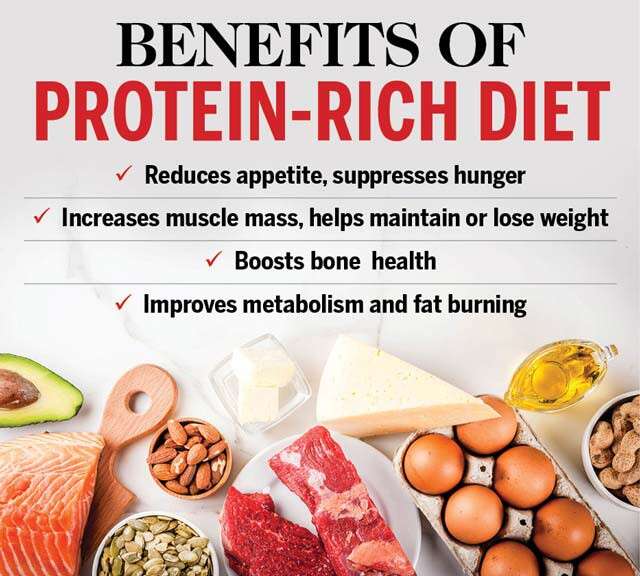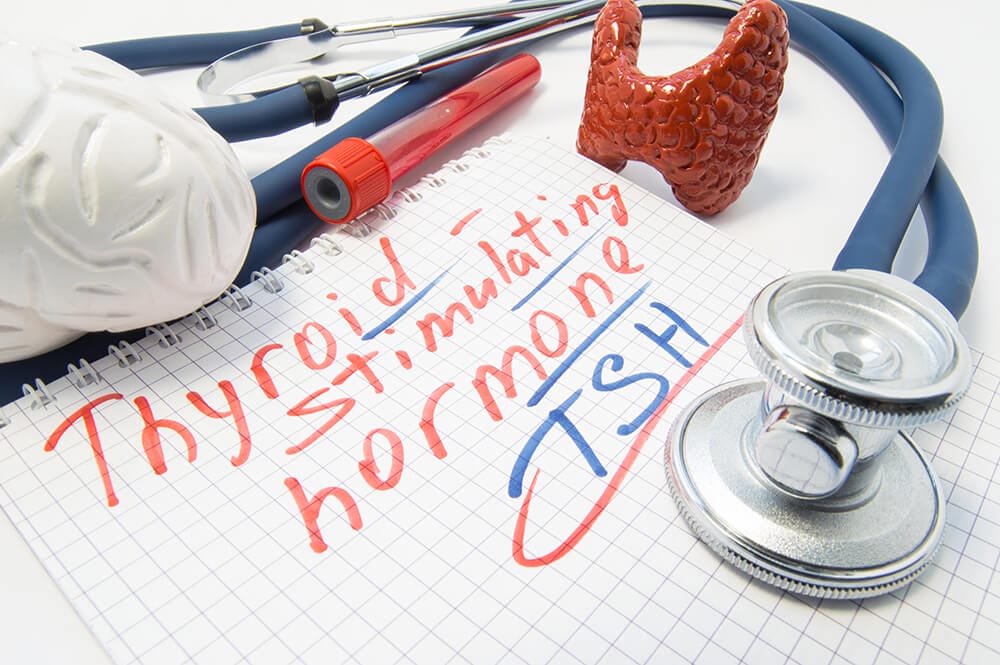Consuming a high protein diet plays a vital role in promoting muscle growth, facilitating faster post-workout recovery, supporting weight management goals, and providing prolonged satiety.
Therefore, it is logical to strive for increasing your protein consumption.
According to the International Food Information Council (IFIC) 2023 Food and Health Survey, 52 percent of Americans have adhered to a specific eating pattern in the past year. Among these dietary choices, high-protein diets emerged as the most favored option, embraced by 18 percent of individuals.
According to Kris Sollid, R.D., senior director of nutrition communications at IFIC, high-protein diets have recently regained popularity in the survey’s list. In 2018, only 4 percent of respondents reported following such a diet. However, the reasons behind the increased emphasis on protein remain uncertain.
“Two significant factors that cannot be disregarded since 2018 are the influence of Covid-19 on dietary preferences and the increased accessibility of plant-based protein food and beverage options,” he explains.
The IFIC survey revealed that individuals opted for specific diets primarily to achieve goals such as weight loss, improved physical appearance, enhanced well-being, increased energy levels, and prevention of potential health issues.
Leah Silberman, R.D., a registered dietitian at Medical Offices of Manhattan, emphasizes that incorporating additional protein into your diet can provide a wide array of advantages, particularly for individuals engaged in weightlifting and intense workout routines.
However, the specific amount of protein required in a high-protein diet varies based on factors such as age, weight, level of physical activity, and overall health, explains Leah Silberman, R.D., from the Medical Offices of Manhattan. It’s important to note that excessive protein intake can have potential disadvantages, even though protein is an essential nutrient for the body.
Dietitians provide a comprehensive understanding of what constitutes a high-protein diet, offer guidance on incorporating more protein into your meals, and highlight the potential benefits associated with such an approach.
What Exactly Is a High-Protein Diet?
According to the Harvard T.H. Chan School of Public Health, protein is present in various parts of the body, including muscles, bones, skin, and hair. It plays a crucial role in fueling numerous chemical reactions within the body, including the function of hemoglobin, which is responsible for transporting oxygen in the bloodstream.
While consuming protein is beneficial for overall health, determining the exact definition of a “high protein” diet can be challenging, as stated by Sollid.
“For example, certain protein recommendations are formulated based on the percentage of calories derived from protein in a diet,” he explains. “On the other hand, other protein recommendations are based on an individual’s body weight.”
It is recommended that adults consume a minimum of 0.8 grams of protein per kilogram of body weight per day. This roughly translates to around 7 grams of protein for every 20 pounds of body weight.
According to Silberman, consuming protein in quantities exceeding the recommended daily intake would classify as a high-protein diet.
Here is an example of what a high-protein diet can entail:
High-Protein Diet: Tailoring Protein Intake According to Body Weight
According to Sollid, a general guideline for the average person on a high-protein diet is to consume 1.2 grams or more of protein per kilogram of body weight. However, for individuals engaging in intense workouts and weight training, increasing protein intake to 1.75 grams may be advisable.
If you choose to consume 1.75 grams of protein per kilogram of body weight per day, the calculation would be as follows:
- For a person weighing 154 pounds, consuming 1.75 grams of protein per kilogram of body weight would amount to approximately 125 grams of protein per day.
- Similarly, for a person weighing 200 pounds, opting for 1.75 grams of protein per kilogram of body weight would equal approximately 160 grams of protein per day.
High-Protein Diet: Emphasizing Protein as a Percentage of Calories
According to Sollid, protein intake can fluctuate based on individual caloric requirements, which are influenced by factors such as age, size, fitness level, and other related aspects.
An alternative approach to boosting protein intake is by incorporating protein-rich foods as a substantial portion of your daily calorie intake. For instance, Sollid suggests that a high-protein diet could be characterized by consuming over 22 percent of your total daily calories from protein. Here are a few examples:
- For a 1,500-calorie diet, aiming for a high-protein intake would involve consuming approximately 80 grams of protein per day.
- Similarly, on a 2,000-calorie diet, targeting a high-protein intake would mean consuming around 110 grams of protein per day.
- For a 2,500-calorie diet, the recommended high-protein intake would be approximately 140 grams of protein per day.
- Finally, on a 3,000-calorie diet, the high-protein goal would be around 135 grams of protein per day.
The Advantages of Protein: Unveiling Its Benefits
Protein has demonstrated its effectiveness in aiding weight loss and weight management by promoting prolonged satiety. A study revealed that overweight women who increased their protein intake from 15 percent to 30 percent experienced a reduction in daily calorie consumption by approximately 400 calories.

Research further indicates that increasing protein intake assists in preserving muscle mass and promoting muscle and strength development, particularly when engaging in strength training exercises.
The protein exhibits the potential to enhance metabolism, leading to increased calorie burning. Additionally, protein consumption has been associated with potential benefits such as reducing blood pressure levels and supporting optimal bone health.
Understanding the Effects of Excessive Protein Consumption
Although it is possible to overconsume any nutrient, Sollid explains that the majority of healthy individuals generally do not need to be concerned about excessive protein intake. However, individuals with specific health conditions such as kidney disease should closely monitor their protein consumption.
Silberman mentions that there is no officially defined threshold for excessive protein intake, as tolerances vary among individuals. However, she points out that surpassing 2 grams of protein per kilogram of body weight is unlikely to provide additional benefits.
The Potential Drawbacks of a High-Protein Diet
Solid suggests that excessively emphasizing protein in your diet may lead to neglecting other crucial nutrients, such as fiber.
Explaining further, he points out that since fiber is exclusively present in plant-based fast foods, a high-protein diet that excessively focuses on animal-based foods and lacks an adequate inclusion of fruits, vegetables, and whole grains could potentially result in a low-fiber diet.
Silberman highlights that prolonged excessive protein intake can place strain on the kidneys, particularly if there is an existing risk for kidney problems.
She further advises increasing water intake when increasing protein consumption, as it can elevate the risk of dehydration. The body necessitates additional water to metabolize and eliminate the byproducts of protein breakdown.
When to Include Protein in Your Diet?
Silberman explains that since the body requires protein consistently throughout the day, there is no need to prioritize specific times for its consumption.
Solid suggests that for maximum muscle benefit, it is more advantageous to distribute protein intake evenly across three meals rather than consuming it all in a single meal.
Additionally, Silberman adds that consuming protein within an hour after a workout can aid in muscle repair and synthesis.
Tips to Boost Your Protein Intake
Protein can be obtained from a diverse range of sources, both plant-based and animal-based, depending on personal preferences. Animal sources such as lean meat, poultry, fish, eggs, and dairy products are considered good options. Alternatively, plant-based protein can be found in beans, nuts, seeds, and soy products.
Incorporating these foods into your meals and snacks will assist in boosting your protein intake. Solid advises checking nutritional labels to ensure you are aware of the protein content in the foods you consume.
As an example, soy milk typically offers a higher protein content compared to other plant-based dairy alternatives. Furthermore, Greek yogurt and Icelandic skyr are known to contain more protein than regular yogurt.
Sollid suggests considering the diversification of protein choices, even if the goal is not to increase protein consumption. Including a variety of options such as beans, chickpeas, lentils, peas, seafood, and soy foods can be beneficial.
Conclusion
In conclusion, exploring the advantages and disadvantages of a high-protein diet provides valuable insights for individuals seeking to optimize their nutritional choices. A high-protein diet can contribute to weight management, muscle preservation, and metabolic benefits. However, it is crucial to strike a balance and consider potential drawbacks such as the risk of neglecting other essential nutrients and potential strain on the kidneys. By understanding the potential benefits and limitations, individuals can make informed decisions regarding their dietary habits and tailor their protein intake to align with their specific health goals and needs. It is advisable to consult with a healthcare professional or registered dietitian to ensure a well-rounded and personalized approach to protein consumption.
Frequently Ask Questions:
Is a high-protein diet beneficial for weight loss?
Exploring the potential benefits of a high-protein diet in weight management.
Are there any potential drawbacks to a high-protein diet?
Examining the potential disadvantages and considerations of consuming a high-protein diet.
Can a high-protein diet impact kidney health?
Understanding the relationship between excessive protein intake and its effects on kidney function.
How does a high-protein diet affect muscle development and strength?
Explaining the role of protein in promoting muscle growth and strength during physical training.
Are there recommended guidelines for protein intake on a high-protein diet?
Providing insights into recommended protein intake levels and guidelines to ensure a balanced approach to a high-protein diet.







